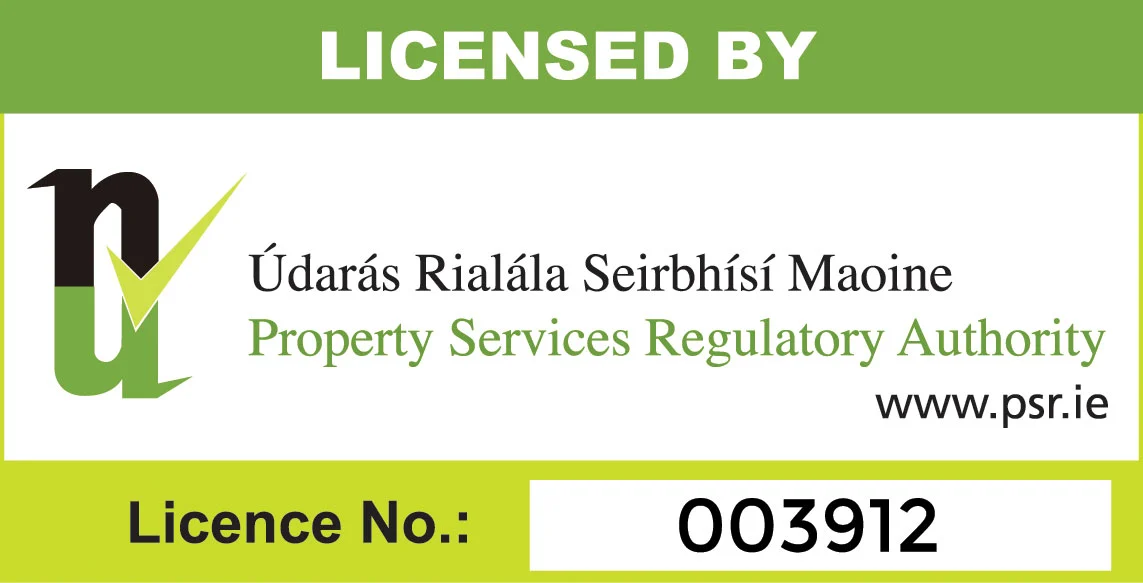Registry of Deeds Versus Land Registry
In Ireland, there are two separate systems where property transactions are registered:
- The Registry of Deeds
- The Registration of Title (Land Registry)
Title: Evidence of ownership of a particular person of an interest or estate in property.
Deeds: A written document affecting the property.

In terms of a background on Registry of Deeds versus Land Registry, the independent statutory body, the Property Registration Authority (PRA) was set up to look after the related documentation. As a general note, title in rural areas is under land registry and those in the city are with the registry of deeds. Crucially though, if it’s with the registry of deeds, then the title is an unregistered title. Compulsory registration (applicable to all counties since 2011) means that unregistered title must be registered with the Land Registry whenever there is a transaction ie change of ownership. The main difference between the Land Registry and the Registry of Deeds is that the Registry of Deeds does not record official property ownership, and as a result does not guarantee title.
What is a Registry of Deeds Title?
The Registry of Deeds was created in 1708 during Queen Anne’s reign so the aim is to now move everything to the more modern and comprehensive ‘title registration’ system provided by the Land Registry. According to the PRA: “93% of the total land mass of the State and almost 90% of the legal titles in Ireland are now registered in the Land Registry.” Furthermore, they state that “2.14 million titles, representing almost 2.8 million individual parcels of land, [are now] registered in the Irish Land Registry.” It’s interesting to note that in county Dublin approximately 80% of land is registered. There are no specific figures available for registered land in Dublin city centre but it seems to be significantly lower than that 80% figure for the county and this is said to be down to “historical legacy”.

Legal Title Coverage Around Ireland - Data Source: PRA Ireland
Registration of Title (Land Registry)
The Register was set up in 1892 but today is fully digitised and contains map and folio details (more on folios below). There is a folio for each individual ownership or title within each county. It provides conclusive evidence of title and State indemnity exists where any person suffers loss should there be an error made by the Registry.

Sample Folio - Credit: PRA Ireland
What information is on a folio?
Once a folio has been issued for a property, every subsequent transaction is then recorded and registered on that folio. It contains:
- Name & address of the registered owners
- The type of ownership
1. Absolute Title - this type of title gives unequivocal right of ownership to the owner, and cannot be disputed or challenged by anyone else.
2. Good Leasehold Title - sometimes an application to register leasehold property is made but it’s found that the freehold is unregistered. If the applicant fails to provide evidence of the freehold title to the Land Registry, the property will be registered as “good leasehold title”.
3. Possessory Title - requires investigation to enable conversion of title to absolute/good leasehold (note: cannot mortgage or sell the property until absolute title is registered). - Anything affecting the property is also recorded for example any mortgages, or other items registered against it.
- A plan /map (see sample below) of the property is attached to the folio. Note that a map does not conclusively indicate whether a boundary includes a hedge or a wall etc. However, the physical features along which the boundaries run will be accurately identified. Disputes about boundaries are not handled by the Registry, these matters must be resolved between the individual parties themselves and if they cannot resolve them, it would have to be handled by the courts.

Sample Title Plan from PRA - Credit: https://www.prai.ie/
Anyone can search for a folio or title details themselves by visiting https://www.landdirect.ie/ or a copy of a folio can be inspected in the PRA’s public offices (located in Dublin, Waterford and Roscommon), costing €5. You can also request a certified copy issued by post, costing €40. If you’ve looked at the land registry and your property is not there, it may have been logged in the Registry of Deeds.
Registration of Deeds
The Registry of Deeds was set up in 1708 and are a mixture of manual, micro-film (film bearing a photographic record on a reduced scale) and digitised records. A record of registration is kept in the form of a “memorial” but the actual copy is provided back to the party that lodged it. A memorial (summary deed) contains the following details:
- The date
- The names and descriptions of all parties and all witnesses to the deed
- A description of the property affected by the deed
Since 2008, memorial deeds have been replaced by “ROD application forms”. A record of deeds can be inspected by anyone and the office is located on Henrietta St, Dublin 1, [ Eircode: D01 EK82 ]. Deeds for a time were fully copied and transcribed into transcript books right up until 1961. If for example, you’re looking to find out who owns a specific property, the Registry of Deeds might provide some help but it’s important to note that the registry doesn’t record ownership of property. It records the existence of deeds related to transaction of a property if one took place.
In the instance of a property transaction and working with unregistered title, a Solicitor will receive a number of old title documents. In representing their client, they will attempt to trace the title to ensure the client will have good title to the property following the transaction; this can be laborious. This contrasts with the Land Registry system because in that instance, the solicitor will know from the folio conclusively of the historic elements of ownership.

 Marketplace
Marketplace